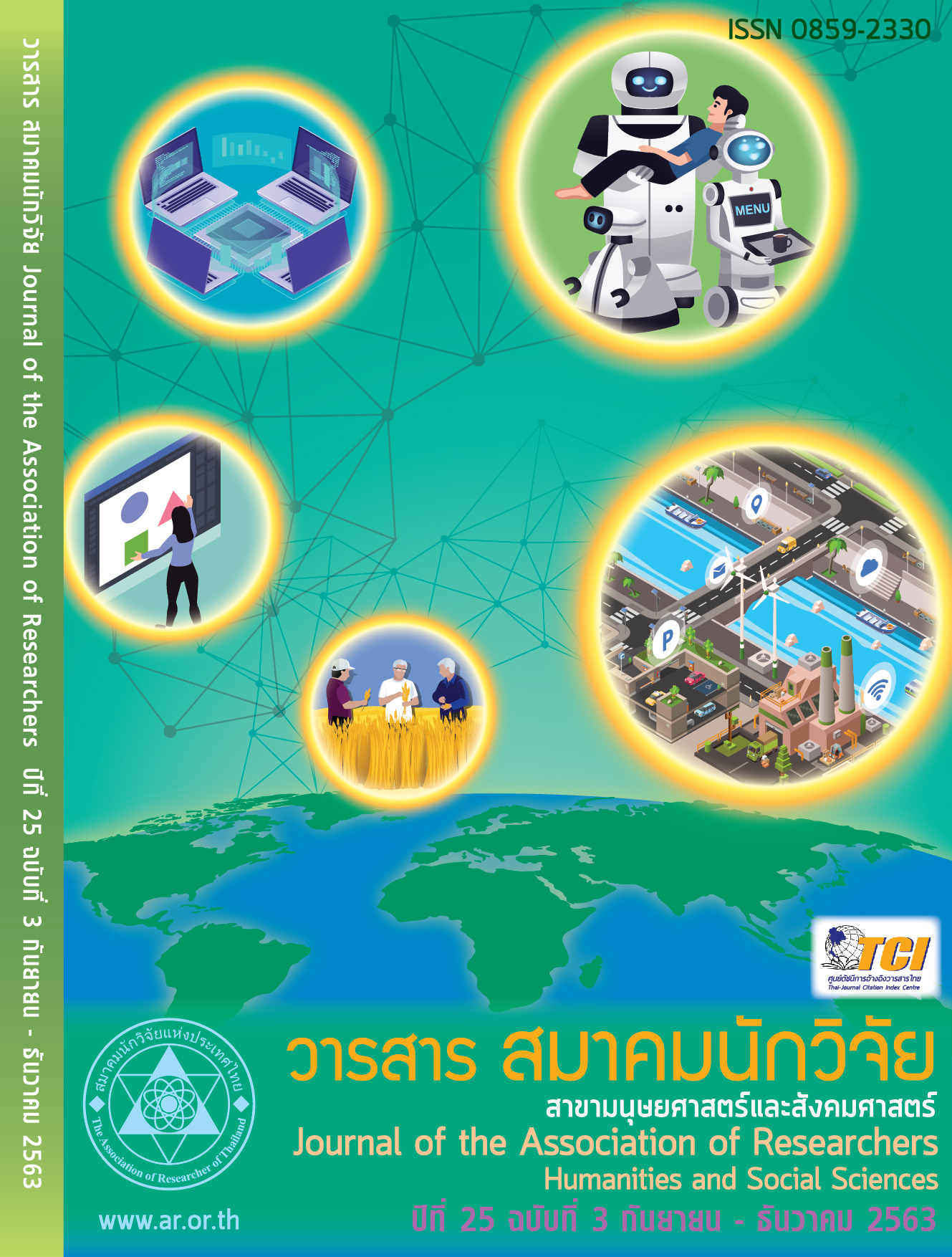Relationship among Inspirational Leadership, Organizational Commitment and Organizational Citizenship Behaviour of Staff within Yala Hospital: Multilevel Analysis.
Main Article Content
Abstract
The main purpose of this paper was to examine the relationship between inspirational leadership, organizational commitment and organizational citizenship behaviour of staff within Yala hospital. The objective was threefold: (a) to study the within-level direct effect of organizational commitment on organizational citizenship behaviour, (b) to study the cross-level direct effect of inspirational leadership on organizational citizenship behaviour, and (c) to study the cross-level interaction effect of inspirational leadership on the relationship between organizational commitment and organizational citizenship behaviour. The correlational research design and the cross-sectional study were employed. The multilevel analysis was applied. The research results indicated that the organizational commitment had a significantly positive within-level direct effect on the organizational citizenship behaviour, and the inspirational leadership had a significantly positive cross-level direct effect on the organizational citizenship behaviour, but the inspirational leadership had a non-significantly cross-level interaction effect on the relationship between the organizational commitment and the organizational citizenship behaviour of staff within Yala hospital. The results showed that the direction of the organizational citizenship behaviour policies should enhance and develop the behaviour of the inspirational leadership and the organizational commitment in the context of Yala hospital.
Article Details
บทความที่ปรากฏในวารสารนี้ เป็นความรับผิดชอบของผู้เขียน ซึ่งสมาคมนักวิจัยไม่จำเป็นต้องเห็นด้วยเสมอไป การนำเสนอผลงานวิจัยและบทความในวารสารนี้ไปเผยแพร่สามารถกระทำได้ โดยระบุแหล่งอ้างอิงจาก "วารสารสมาคมนักวิจัย"
References
Aguinis, H., Gottfredson, R. K., & Culpepper, S. A. (2013). Best-practice recommendations for estimating cross-level interaction effects using multilevel modeling. Journal of Management, 39(6), 1490-1528.
Allen, N. J., & Meyer, J. P. (1990). The measurement and antecedents of affective, continuance, and normative commitment to the organization. Journal of Occupational Psychology, 63(1), 1–18.
Braun, S., Peus, C., Weisweiler, S., & Frey, D. (2013). Transformational leadership, job satisfaction, and team performance: A multilevel mediation model of trust. The Leadership Quarterly, 24(1), 270–283.
Eliason, S.R. (1993). Maximum Likelihood estimation. Newbury Park, CA: Sage.
Huta, V. (2014). When to use hierarchical linear modeling. Tutorials in Quantitative Methods for Psychology, 10(1), 13- 28.
Kao, Rui-Hsin. (2015). A study on the relationship between transformational leadership and organizational climate: Using HLM to analyze context effects of the police organization. Global Advanced Research Journal of Management and Business Studies, 4(3), 87-115
Lin C.P., Hung W.T., & Chiu C.K. (2008). Being good citizens: Understanding a mediating mechanism of organizational commitment and social network ties in OCBs. Journal of Business Ethics, 81(3), 561–578.
Marsh, R. M., & Mannari, H. (1977). Organizational commitment and turnover: A prediction study. Administrative Science Quarterly, 22(1), 57–75.
Organ, D. W. (1988). Organizational citizenship behavior: The good soldier syndrome. Lexington Books/ D. C. Heath and Company.
Podsakoff P.M., MacKenzie S.B., & Bommer W.H. (1996). Transformational leader behaviors and substitutes for leadership as determinants of employee satisfaction, commitment, trust, and organizational citizenship behaviors. Journal of Management, 22(2), 259–298.
Snijders, T., & Bosker, R. (1994). Modeled variance in two-level models. Sociological methods and research, 22(3), 342-363.
Tse, H. H., & Chiu, W. C. (2014). Transformational leadership and job performance: A social identity perspective. Journal of Business Research, 67(1), 2827–2835.
Wu, J. B., Tsui, A. S., & Kinicki, A. J. (2010). Consequences of differentiated leadership in groups. Academy of Management Journal, 53(1), 90–106.
Translated Thai Reference
Chandasuwan, P. (2018) Testing measurement invariance across groups: Inspirational leadership scale. Journal of the Association of Researchers, 23(1), 36-48. (in Thai).


